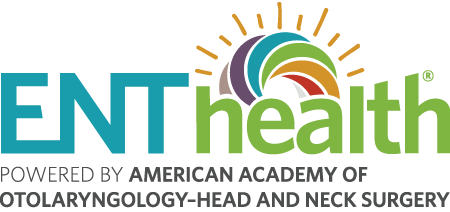Menu
GERD and LPR
Acid reflux occurs when acidic stomach contents flow back into the esophagus, the swallowing tube that leads from the back of the throat to the stomach.
When acid repeatedly “refluxes” from the stomach into the esophagus alone, it is known as gastroesophageal reflux disease (GERD). However, if the stomach acid travels up the esophagus and spills into the throat or voice box (called the pharynx/larynx), it is known as laryngopharyngeal reflux (LPR).
While GERD and LPR can occur together, people sometimes have symptoms from GERD or LPR alone. Having symptoms twice a week or more means that GERD or LPR may be a problem that could be helped by seeing a doctor.
What Are the Symptoms of GERD and LPR?
Many patients with LPR do not experience classic symptoms of heartburn related to GERD. And sometimes, adult patients may experience symptoms related to either GERD or LPR like:
- Heartburn
- Belching
- Regurgitation (a surge or rush back) of stomach contents
- Frequent throat clearing or coughing
- Excess mucus
- A bitter taste
- A sensation of burning or throat soreness
- Something “stuck” or a “lump” in the back of the throat
- Hoarseness or change in voice
- Difficulty swallowing
- Drainage down the back of the nose (post-nasal drip)
- Choking episodes (can sometimes awaken from sleep)
- Difficulty breathing, if the voice box is affected
Signs in infants and children are different from adults and may include:
- Breathing problems such as a cough, hoarseness, noisy breathing, or asthma
- Pauses in breathing (apnea) or snoring when sleeping
- Feeding difficulty (spitting up)
- Turning blue (cyanosis)
- Choking
- Apparent life-threatening event where there is arching of the back while in distress
- Trouble gaining weight or growing
css id:
What Causes GERD and LPR?
GERD and LPR can result from physical causes and/or lifestyle factors. Physical causes can include weak or abnormal muscles at the lower end of the esophagus where it meets the stomach, normally acting as a barrier for stomach contents re-entering the esophagus. Other physical causes include hiatal hernia, abnormal esophageal spasms, and slow stomach emptying. Changes like pregnancy and choices we all make daily can cause reflux as well. These choices include eating foods like chocolate, citrus, fatty foods, spicy foods or habits like overeating, eating late, lying down right after eating, and alcohol/tobacco use (see below).
GERD and LPR in infants and children may be related to causes mentioned above, or to growth and development issues.
css id:
What Are the Treatment Options?
Your primary care provider or pediatrician will often refer you to an ENT (ear, nose, and throat) specialist, or otolaryngologist, for evaluation, diagnosis, and treatment if you are having related symptoms.
GERD and LPR are usually suspected based on symptoms, and can be further evaluated with tests such as an endoscopic examination (a tube with a camera inserted through the nose), biopsy, special X-ray exams, a 24-hour test that checks the flow and acidity of liquid from your stomach into your esophagus, esophageal motility testing (manometry) that measures muscle contractions in your esophagus when you swallow, and emptying of the stomach studies. Some of these tests can be performed in an office.
Options for treatment include lifestyle and dietary modifications (see below), medications, and rarely surgery. Medications that can be prescribed include antacids, ulcer medications, proton pump inhibitors, and foam barrier medications. To be effective, these medications are usually prescribed for at least one month, and may be tapered off later after symptoms are controlled. For some patients, it can take two to three months of taking medication(s) to see effects.
Children and adults who do not improve with medical treatment may require surgical intervention. Surgical treatment includes “fundoplication,” a procedure that tightens the lower esophageal muscle gateway (lower esophageal sphincter, or LES). Newer techniques allow this to be done in an endoscopic or minimally invasive manner. Another surgical option uses magnetic beads to tighten the LES.
What Changes Can I Make to Prevent GERD and LPR?
For adults, you can take certain steps to reduce or prevent occurrences of GERD and LPR, including:
- Lose weight.
- Cut down or stop smoking tobacco products.
- Limit or avoid alcohol.
- Wear clothing that is looser around the waist.
- Eat three to four small meals a day, instead of two to three large ones, and eat slowly.
- Avoid eating and drinking within two to three hours of bedtime.
- Limit problem foods, such as caffeine, carbonated drinks, chocolate, peppermint, tomatoes, citrus fruits, fatty and fried foods, and/or spicy foods.
css id:
What Questions Should I Ask My Doctor?
- Can I take over-the-counter medications to help control my acid reflux?
- What other steps can you recommend that I take to reduce or limit acid reflux?
- Is acid reflux an indication of a larger problem?
Copyright 2025. American Academy of Otolaryngology–Head and Neck Surgery Foundation.
Last reviewed August 2018.
GERD AND LPR VIDEOS
Dr. Albert Merati provides an overview of GERD and LPR.
Disorders that affect our ability to speak and swallow properly can have a tremendous impact on our lives and livelihoods. ENT specialists treat sore throat, infections, gastroesophageal reflux disease (GERD), throat tumors, airway and vocal cord disorders, and more.
Related Be ENT Smart Articles
The information on ENThealth.org is provided solely for educational purposes and does not represent medical advice, nor is it a substitute for seeking professional medical care.
Get the Care You Need
Find an ENT
Think you need to consult an ENT specialist? Find someone with the expertise and location that’s best for your needs.
Be ENT Smart
Learn how to stay ENT healthy, prevent problems, and manage existing conditions to improve your, or a loved one’s, daily life.
About ENThealth.org
Find out more about the community of physician experts who can help you to Be ENT Smart and how the information was developed.
Copyright 2025. American Academy of Otolaryngology–Head and Neck Surgery Foundation

